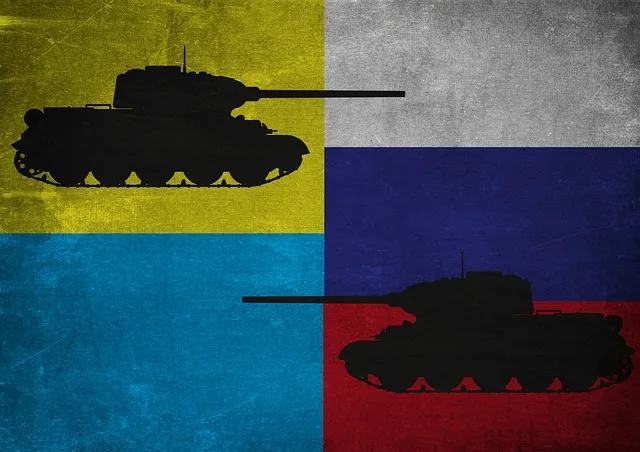Opinion is not the same as truth. How do we winnow the wheat from the chaff when reading about current events? Mainstream news outlets have their prejudices regarding what to report and how to report it, no matter how much they claim to be fair, balanced, and unbiased. Alternative media often leans into that bias, for better or worse, but at least usually with some honesty about their angle. Social media sometimes seems like just a cesspool of outrage masquerading as information.
Continuing on from part 1, how do we navigate all of this? Today's topic:

Image credit
The Russo-Ukraine War
After the Soviet Union collapsed, the former constituent Republics and countries in the Soviet sphere of influence in eastern Europe were thrust into independence. Old political borders often had little bearing on ethnic and cultural groups. This created internal conflict, particularly obvious in the former Yugoslavia, but also simmering under the surface in parts of Ukraine.
Russia
I don't trust Putin. I wouldn't go so far as to say he's running a shadow version of the old Soviet Union through his old KGB affiliation like some of his critics claim, but neither would I argue he's an exemplar of virtuous authority. Power corrupts, and absolute power corrupts absolutely. Putin appears to want absolute power. I didn't expect his invasion of Ukraine last year, thinking at the time that his maneuvers near the border were just more posturing like we have seen for decades by all major powers. I was wrong there. He was crazy enough to wage open war.
The US and NATO proclaim their outrage at Russian belligerence, but even a cursory look at history reveals their hypocrisy, especially that of the US which had officially wrapped up two decades of bloody pointless wars for regime change. There is also reason to suspect the US and/or other NATO powers sabotaged the Nord Stream pipeline. As is often the case, an adversary was blamed for something they had no reason to do. Picture a water hose. Russia has the spigot. Germany has the nozzle. Either one can shut off the flow without harming the hose. Accusing Russia of destroying the pipeline makes little sense without showing what they have to gain by losing a major economic bargaining chip.
War is insanity, but people do things for a reason. This doesn't justify their actions, but there is always some kind of explanation. I firmly believe the political class in any country is evil, but they aren't stupid.
Ukraine
The government of Ukraine is corrupt. The Hunter Biden Laptop story wasn't a story because of hookers and drugs, but because it indicates a long history of business dealings and political favors. Ukraine and Russia have had a simmering conflict since the 2014 "Revolution of Dignity" where Russia and NATO both intervened. For years the US has been sending arms to Ukraine, and NATO/EU membership has been a point of contention.
I have a degree of sympathy for those who live in the Donbas region and wish to secede. There is nothing sacred about national borders and government territorial claims. People do need to be free to choose their allegiance. However, I very much doubt these feelings are unanimous, and those who hate being ruled by Kyev have no authority to compel their neighbors to be ruled by Moscow. As with all wars, people who have no part in these disputes are sent to kill and die to serve the vanity of the political class and line the pockets of their corporate cronies.
Meanwhile the US continues to intervene with money and supplies at the expense of Americans while escalating the risk of open conflict and even potential nuclear war. I don't think Putin would launch nukes, but I didn't think he'd launch missiles at Ukrainian cities, either. Nationalism is the most dangerous and deadly religion devised by mankind.
Conclusion?
I'm not Ukrainian. I have no connection to the situation there if not for "my" government's intervention. I can't help but feel like I'm only getting propaganda instead of news. Russian news outlets have been squelched, and while I don't imagine their perspective is any less skewed and dishonest, it's far easier for "our leaders" to lie when the other side has been silenced. Can we trust anything they say? Are lies by omission any less destructive to public discourse than outright falsehoods we could easily disprove? When the State demands war, know that there is an agenda, even if we don't know the full story.
We also get what I heard someone else call "Forrest Gump history." All of a sudden, for no reason at all, a thing just happened. Who has time for context? What has been happening for the past few decades to build to this point?
Again, explanation is not justification, but we need to try to understand what is really going on instead of relying on nationalism and grand plans of action to fix the problem. Ask your own questions below! Let's hash this out and try to find out how reliable any given narrative really is once subjected to inquiry.
